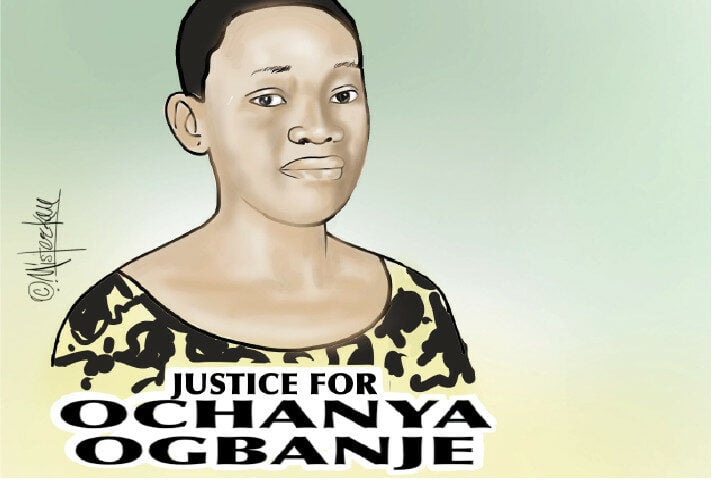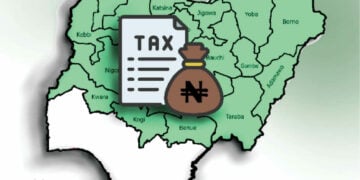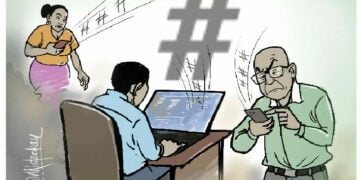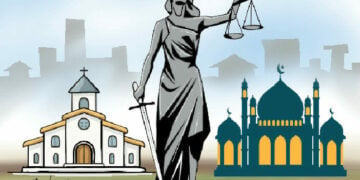Some stories refuse to fade, not because they are pleasant, but because they pierce the conscience of a nation. The story of Ochanya Ogbanje is one of them. It is a wound that refuses to heal, a mirror held up to a society that preaches virtue yet practises violence, that pledges protection but delivers betrayal.
In 2018, Nigeria was forced to confront a tragedy that should have shaken its moral foundations. Thirteen-year-old Ochanya, a bright and spirited girl from Benue State, died from complications arising from years of sexual abuse allegedly perpetrated by a university lecturer, Mr Andrew Ogbuja, and his son, Victor. For five years, from the age of eight until her death, she endured repeated violations in a home where she was supposed to be safe.
The details were horrifying, the betrayal unimaginable. Ochanya’s aunt, the lecturer’s wife, had taken her in to give her access to better education. Instead, the child was subjected to systemic sexual abuse that destroyed her health and ultimately took her life. When she died on October 17, 2018, the autopsy revealed that she suffered from vesicovaginal fistula (VVF) and other complications caused by prolonged sexual assault.
Her death sparked outrage. Civil society groups, women’s rights organisations, and concerned citizens took to the streets demanding justice. Hashtags trended: #JusticeForOchanya became a rallying cry. It seemed, for a moment, that Nigeria would finally rise to confront the epidemic of child sexual abuse and gender-based violence, particularly against women and girls, that had for too long been met with silence and shame.
Yet, seven years later, justice remains elusive and Ochanya’s murderers remain free.
Since 2018, the wheels of justice have turned so slowly that they might as well be stationary. The elder Ogbuja, who was charged with rape and culpable homicide, has remained in and out of court in Makurdi. The younger one, Victor, fled and has never been apprehended by the police, who say they don’t know where he is. Recent reports, however, by active citizens place him somewhere in Lagos living freely under a new identity as a recording artist. The trial, marked by endless adjournments, technicalities, and procedural delays, mirrors the dysfunction of Nigeria’s criminal justice system, one that too often re-traumatises victims while protecting perpetrators through inertia.
The Anatomy of Institutional Failure
In 2022, after four years of legal battle, the High Court in Benue State acquitted the lecturer of culpable homicide and rape, citing a lack of sufficient evidence directly linking him to the child’s death. The prosecution’s case, the judge ruled, was “inconclusive.”
How does a justice system arrive at such a word when a child dies from sustained sexual assault? What does it mean for the countless others who suffer in silence, who may never make the news, who will never have hashtags raised in their names? What does this mean for organisations like the Braveheart Initiative for Youth and Women in Edo State, who work tirelessly to secure convictions against perpetrators of sexual violence? “Inconclusive” is not just a legal verdict; it is a national indictment. It exposes a system that fails to protect the innocent, that allows predators to exploit loopholes, and that normalises impunity through bureaucracy.
Ochanya’s story sits at the intersection of Nigeria’s most profound failures: of law, of governance, and of culture.
At the legal level, her case underscores how the justice system remains inaccessible and ineffective for victims of gender-based violence. The burden of proof in sexual offences is onerous, especially when evidence is destroyed over time or when witnesses are intimidated into silence. The police are often ill-equipped to handle such sensitive cases; prosecutors lack the resources to sustain lengthy trials; judges, overwhelmed by case backlogs, sometimes fail to prioritise crimes against women and children.
At the institutional level, the agencies mandated to protect children from the National Agency for the Prohibition of Trafficking in Persons (NAPTIP) to the state ministries of women affairs are underfunded and underpowered. Social welfare departments, where they exist, are grossly inadequate. Child protection laws, though progressive on paper, rarely translate into action at the community level.
And at the cultural level, the silence surrounding sexual violence remains deafening. Victims are blamed; families are pressured to withdraw cases; communities close ranks to protect perpetrators, especially when they are powerful or influential. In Ochanya’s case, the accused was not a faceless stranger; he was a respected lecturer, a man of status in his community. That power dynamic is often enough to silence victims and embolden predators.
Justice Delayed, Justice Denied
The slow pace of Ochanya’s case is emblematic of a broader pattern. In Nigeria, cases of sexual violence against minors frequently languish in the courts for years, if they are filed at all. The Violence Against Persons (Prohibition) Act (VAPP Act) of 2015 was a landmark law, but its enforcement remains patchy and inconsistent across states. Only about 30 states have domesticated it, and even where it exists, implementation is weak.
In many police stations, officers still lack training on how to investigate sexual offences. Victims are asked intrusive questions or told to “settle” with perpetrators. Medical examinations, which are crucial for evidence, are often delayed or unaffordable. Families, faced with stigma and the financial burden of legal pursuit, give up. And so, the cycle continues.
Each unpunished assault sends a message that the lives of Nigeria’s girls are expendable. Each acquittal without accountability chips away at the public’s faith in justice. Each silence becomes complicity.
A Child Betrayed By Society, A Call For Systemic Change
Ochanya’s story is not just about one family’s cruelty; it is about a nation’s abdication of duty. Nigeria’s Constitution and child protection laws guarantee every child the right to safety, dignity, and education. Yet in reality, millions of children, especially girls, grow up where abuse is normalised and justice is a privilege.
Ochanya should have been alive today, perhaps a university student, a young woman chasing her dreams. Civil society has kept Ochanya’s memory alive, but advocacy cannot be left to NGOs alone. The government must lead the establishment and funding of sexual offences courts in every state, ensuring survivors have access to free legal aid and medical care, and prosecuting perpetrators regardless of their social standing.
Justice for Ochanya must spark reform. First, child protection systems must be strengthened so that every school, community, and local government has trained officers who can identify and respond to abuse. Second, specialised gender-based violence courts — like those in Lagos, Ekiti, and the FCT — should be expanded nationwide to expedite trials and shield victims from further trauma. Third, education must include consent and body-safety training, so children understand that their bodies belong to them and that reporting abuse is an act of courage, not shame.
Religious and traditional leaders must also be held accountable for what they condone. Their silence in the face of abuse is violence in itself. The media and the public must keep these cases in the spotlight until justice is done; the court of conscience must not adjourn.
Children like Ochanya must never again suffer in plain sight, unseen until death. Her story should be a catalyst for reform and a reminder that until justice is done, Nigeria remains a nation in moral debt to her and her family.
May Ochanya’s soul rest in peace.





